Thane vet creates a global online database to allow canine blood donors and recipients in close proximity to connect with each other
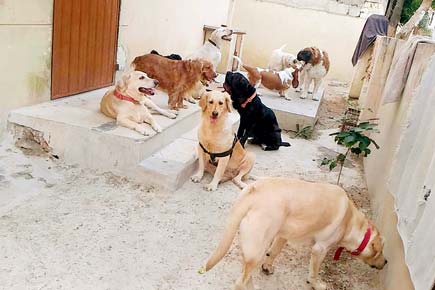
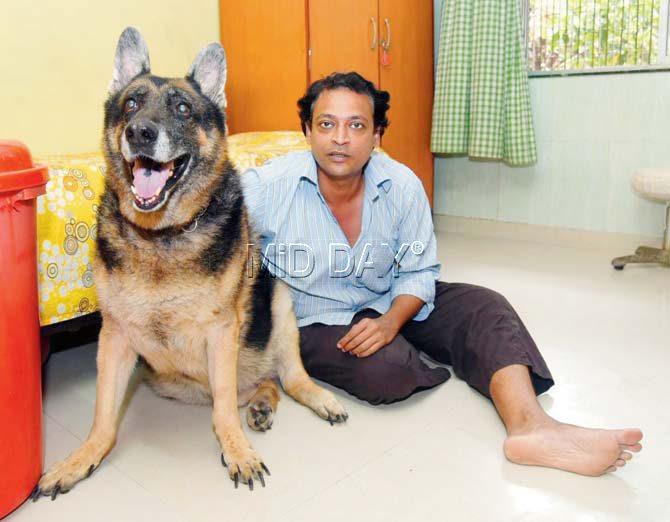
Amol Kalgutkar, with 12-year-old Bruno. Pic/Nimesh Dave
Your beloved pooch needs a blood transfusion? Dr Karishma Gupte may have just the match for it. The Thane-based veterinarian’s maiden project — a global online database for canine blood donors — which went live on October 5, aims at enabling veterinarians, pet owners and animal activists connect with each other within a set time.
ADVERTISEMENT
After registration, both donors and recipients within a locality will show up on a map.
"During emergencies, the biggest challenge is to find a donor within a given amount of time," points out Gupte. "The map — Canine Blood Donors — will minimise the time spent looking for a recipient by showing registered donors within their neighbourhoods itself. The donors can then be contacted directly by either individuals or veterinarians.”
After a donor dog is located within a neighbourhood, a veterinarian will have to carry out a full screening process to ensure that the dog is healthy, and only then perform the transfusion.
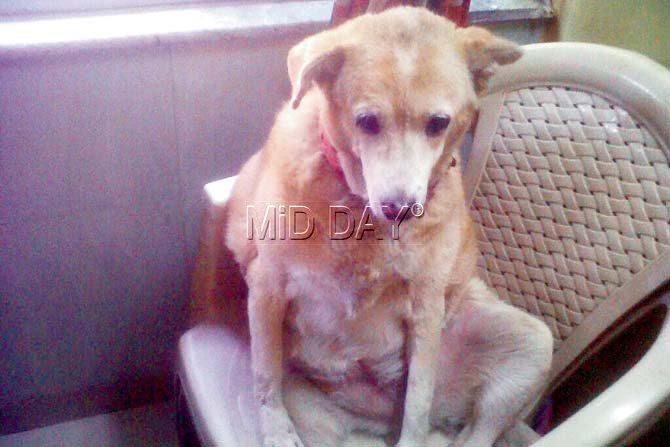
Lapsy, which died three years ago, saved eight dogs during its life
Gupte was prompted to work on a canine registry after treating a pug, Rusty, afflicted by two to three diseases and in dire need of blood at her clinic last month. Despite cross-matching (testing two blood groups for compatibility) Rusty’s blood with that of six to seven dogs, she couldn’t find a suitable match. Rusty finally did get a donor, but the struggle set Gupte on the path to connect canine blood donors and recipients.
Needed: Canine blood banks
Canine blood donors are hard to come by. Gupte blames pet owners’ mindset for this. “They believe that their dogs will become weak after donating blood. This isn’t true. Humans donate blood all the time. It works the same way with dogs,” she says.
A donor dog, though, must weigh over 25 kg and be “perfectly healthy”.
Gupte says dogs can donate blood across breeds, provided the cross-matching is successful. But sometimes, it could take up to a fortnight to find the right donor, which could cost the dog its life.
Apart from changing mindsets, a majority of city-based veterinarians and animal activists believe that canine blood banks could help close the gap; there is none such in the city. “We have everything — infrastructure, veterinarians and medicines. The main problem is that we have no facility to preserve canine blood,” explains Gupte.
She says there are 12 canine blood groups, as compared with four major blood groups in humans. This makes the storage process tougher owing to the larger space required. Also, since blood cannot be stored for more than a few days, most of the stored blood can go to waste.
“Blood, as a tool, gives a patient time,” says Dr Jairam Ramani, a veterinarian in Malad. “In the last 15-20 years, there have been many attempts to establish a canine blood bank in the city. We need a bank to store blood and blood products such as fresh frozen plasma and cells. The lead to create such a bank must be taken by city-based educational institutions.”
The main complication, according to Dr Ramani, is the legality behind obtaining specific plastic blood storage bags. “If one has a donor dog, s/he cannot procure or buy a bag in which to store the blood,” he said.
Another city-based veterinarian says in veterinary practice, no one actually sells blood. “We have to use the leftover bag(s) from human blood banks.”
And, in case a dog needs multiple transfusions over a period of time, the owner has to find a new donor each time since a three-month cooling off period between two donations is mandatory.
Transfusion process
Dr Shailesh Pethe, considered a pioneer of canine blood transfusion in Mumbai and also Gupte’s mentor, carries out an average of around five successful transfusions a month.
“The number of cases where we immediately need blood is around 20 per month, but we can successfully find donors and carry out the transfusion in only 5-6 of them,” he said.
But how does one find a donor if there isn’t a set mechanism? “We find the donors ourselves, or else ask the pet owner to find one,” says Pethe. “As of today, there is a group of about a 100 veterinarians in the city who spread the word among themselves and their donor friends in case of emergencies.”
Pethe is sure that Gupte’s database will make this process much smoother. “All of us, and our extended donor contacts, will be able to register our dogs as donors. We will also be able to locate donors in close geographical proximity, thus saving valuable time.”
The project has taken the first step towards success. A resident of Bengaluru, Jyothi Das, registered her Golden Retriever as a donor — the first on the database — on October 6.
When a stray saved a German Shepherd
It was nearly 12 years ago that Borivli-based Amol Kalgutkar’s German Shepherd, Bruno, had to undergo a blood transfusion. Three months old at the time, Bruno then belonged to a boy in the neighbourhood.
One day, Amol saw Bruno, while being walked by the boy, puking blood. The boy told him that it had not been keeping well, and that he was taking it to Dr Shailesh Pethe for treatment. “I spoke to Dr Pethe about this. He spoke to the boy, who agreed to give Bruno’s custody to me,” says Kalgutkar.
Over the next 48 hours, though, young Bruno’s health deteriorated. Its blood platelet and haemoglobin count fell drastically, and it continued to throw up. “After an examination, the doctor diagnosed him with gastroenteritis, and said the only thing that could keep him alive was a blood transfusion,” recalls Kalgutkar, who, at the time, had five dogs.
Dr Pethe encouraged him to bring one of his other dogs to carry out the transfusion.
Lapsy, a stray that Kalgutkar had adopted, turned out to be Bruno’s lifesaver. “A successful blood transfusion was carried out, and in three days, Bruno started eating regularly and moving around,” says Kalgutkar.
Today, Bruno is sprightly for a 12-year-old dog. As for Lapsy, it went on to become an official blood donor, and saved lives through seven other successful transfusions over the years.
How other cities fare
Donor collective in Bengaluru
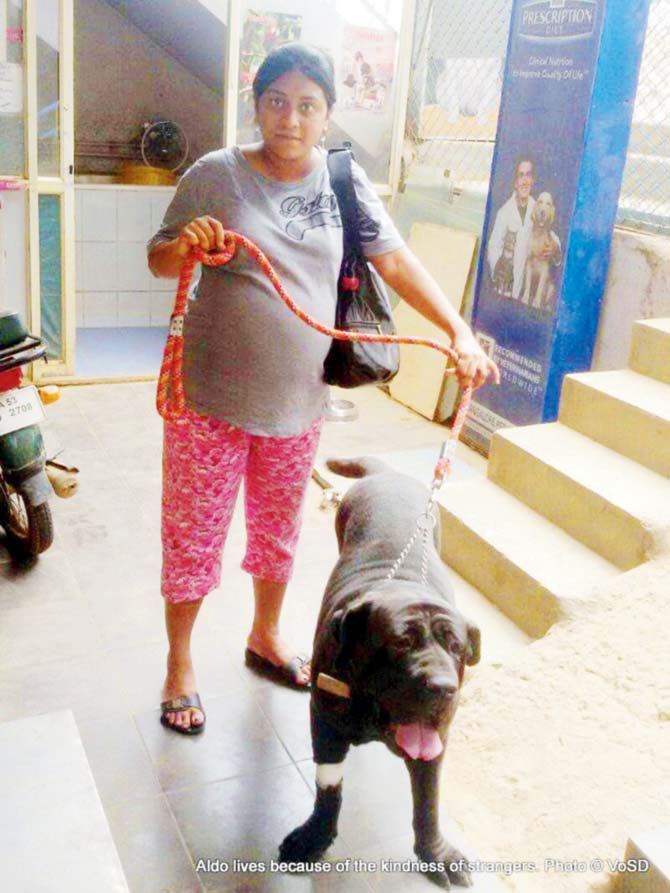
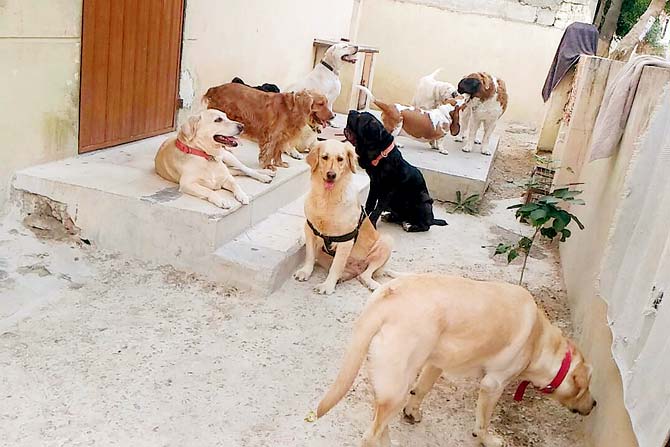 Tina Fernandes and her band of doggie blood donors
Tina Fernandes and her band of doggie blood donors
Tina Fernandes moved this year from Mumbai to Bengaluru lock, stock and litter. Her family comprises seven dogs — all rescued or adopted — which have donated blood in multiple transfusions.
On her experience with canine donors in Mumbai, Fernandes says, “When I put up a request on Facebook for canine donors in Mumbai, there was hardly any response. In Bengaluru, the donor scenario is much more organised. We have a list of canine donors on FB from all parts of Bengaluru who can be tagged in case of an emergency. My clan of dogs now helps me save the lives of countless other dogs by donating blood whenever required.”
Tamil Nadu
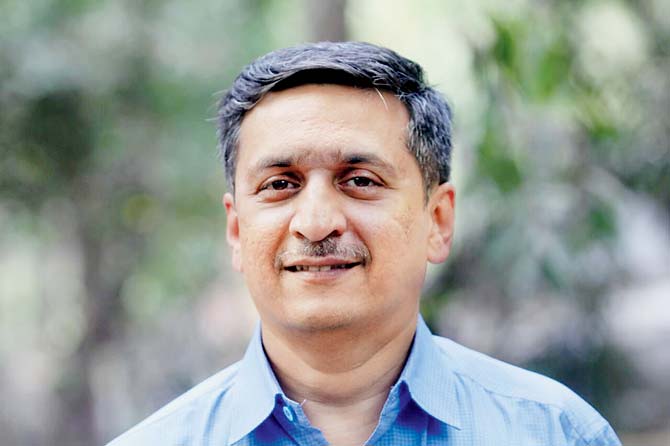
A pioneer
The country’s first and only blood bank for dogs was opened in Chennai, Tamil Nadu, in 2010. The facility, which was started by the Tamil Nadu Veterinary and Animal Sciences University, was inaugurated on World Veterinary Day. Hot Dog, a Labrador, became the first dog to officially donate blood at the blood bank.
3-4
Interval (in months) between two canine blood donations
25 kg
Minimum weight of donor dog
2 hrs
Minimum time for a transfusion
 Subscribe today by clicking the link and stay updated with the latest news!" Click here!
Subscribe today by clicking the link and stay updated with the latest news!" Click here!







